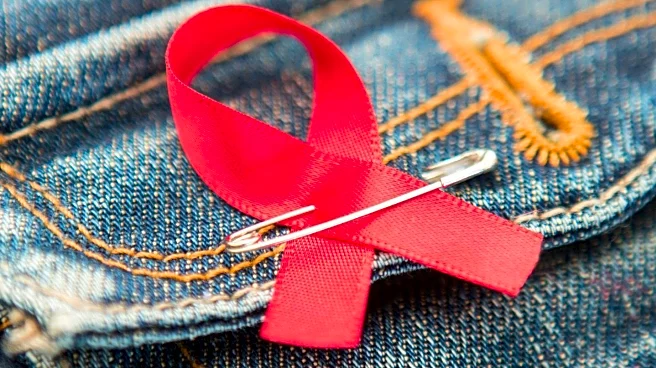What is the story about?
What's Happening?
A recent study by the International Agency for Research on Cancer (IARC) has highlighted the significant economic impact of premature cancer deaths in the United States. According to the Centers for Disease Control and Prevention (CDC), over 1.8 million new cancer cases were reported in the U.S. in 2022, with more than 600,000 deaths in 2023. The study estimates that the global productivity loss due to premature cancer deaths amounted to $566 billion in 2022, with Northern America contributing $112 billion to this figure. The research underscores the profound societal contributions lost due to cancer-related mortality, emphasizing the need for sustained investments in cancer control efforts. The study also found that unpaid work, such as caring for dependents and household tasks, accounted for a significant portion of the productivity loss, particularly among women.
Why It's Important?
The findings of the study underscore the critical need for enhanced cancer prevention and control measures in the U.S. The economic burden of cancer not only affects individuals and families but also has broader implications for societal functioning and economic stability. The study suggests that investing in cancer prevention, such as lifestyle modifications and early detection, could yield substantial returns by reducing the incidence and mortality of high-burden cancers like lung, breast, and liver cancer. Moreover, the research highlights the importance of addressing unpaid work contributions, which are vital to the functioning of families and communities. By focusing on prevention and early detection, the U.S. can potentially reduce the economic impact of cancer and improve public health outcomes.
What's Next?
The study calls for continued investment in cancer prevention and control strategies, including tobacco cessation, healthy dietary habits, and vaccination programs. Experts suggest that prioritizing prevention over detection could save costs in the long term. However, there is debate among experts about the cost-effectiveness of early detection and screening. While some argue that early detection improves health outcomes, others believe it does not necessarily save money. Moving forward, policymakers and healthcare providers may need to balance these perspectives to develop effective cancer control strategies that address both health and economic concerns.
Beyond the Headlines
The study highlights the ethical and societal implications of cancer-related productivity loss, particularly the undervaluation of unpaid work contributions. This aspect of the research points to broader issues of gender inequality and the need for policies that recognize and support unpaid labor. Additionally, the study's findings may influence public policy discussions on healthcare funding and resource allocation, as well as the development of targeted prevention programs for high-burden cancer types.
















